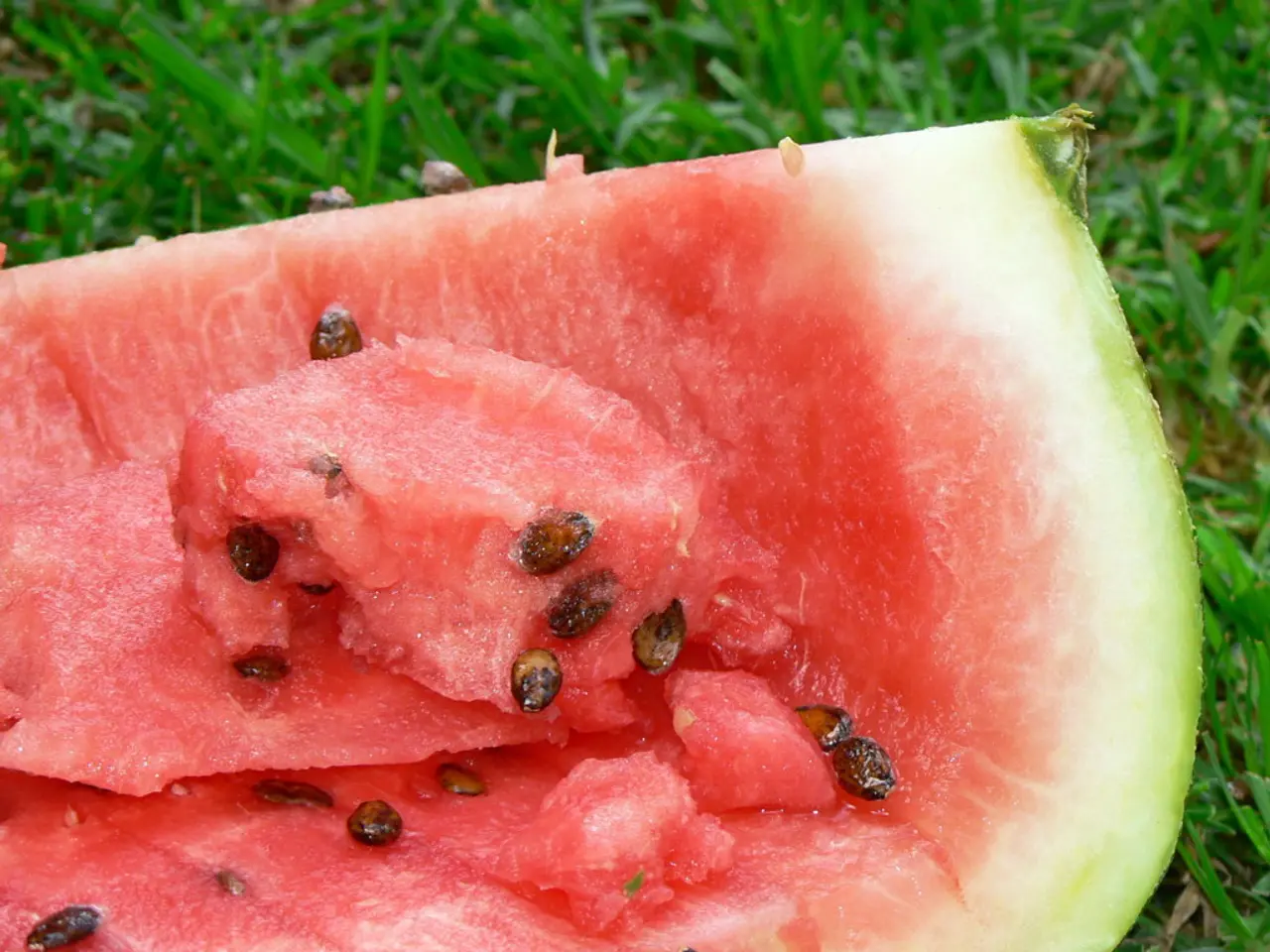Watermelons treated with nitrates now available for purchase in Belarus - learn their origin here
In a concerning development, a batch of watermelons produced by a Turkish company and recently found in retail locations across Belarus has been identified as not meeting safety requirements. The watermelons, packaged on August 2, were produced by IP Gasymov Hazal Ali ogly in the Rostov region.
According to specialists who have conducted inspections of local markets in Belarus, these watermelons were found to contain nitrates. Nitrates, a common contaminant, can cause a range of health issues such as organ intoxication, thyroid problems, and even tumors. Moreover, nitrates can reduce the vitamin content of the fruit, impair its preservation, and potentially lead to organ intoxication, thyroid problems, and tumors.
The discovery of these nitrate-laden watermelons in Belarus follows a similar incident involving cucumbers. Caution is therefore advised when purchasing and preparing watermelons.
To ensure safety, before serving, the watermelon should be thoroughly scrubbed with a brush, then rinsed with boiling water and cold water. After cutting, the remaining watermelon should be wrapped in food wrap and stored in the refrigerator for no more than 24 hours. It's best not to wipe the fruit, allowing it to air dry to help eliminate most microorganisms.
Doctors also recommend declining offers from vendors to cut the watermelon due to the risk of contamination. It's best to buy from trusted sources and avoid unlicensed trading and purchases from random individuals. Watermelons with safety violations have been found on sale in Belarus, specifically in the Gomel region.
Despite the safety concerns, watermelons remain one of the main summer treats in Belarus. They consist of 90% water and sugars, creating a nurturing environment for microorganisms. To minimise the risk of contamination, it's not recommended to buy watermelons that are lying on the ground or have damages like cracks.
When purchasing watermelons, it's crucial to place them in areas protected from insects, rodents, and pets. It's also important to remember that watermelons should not be stored for longer than their shelf life, which in this case is 30 days.
As always, consumer safety is paramount. By following these guidelines, you can help ensure a safe and enjoyable watermelon-eating experience this summer.
Read also:
- Peptide YY (PYY): Exploring its Role in Appetite Suppression, Intestinal Health, and Cognitive Links
- Toddler Health: Rotavirus Signs, Origins, and Potential Complications
- Digestive issues and heart discomfort: Root causes and associated health conditions
- House Infernos: Deadly Hazards Surpassing the Flames




